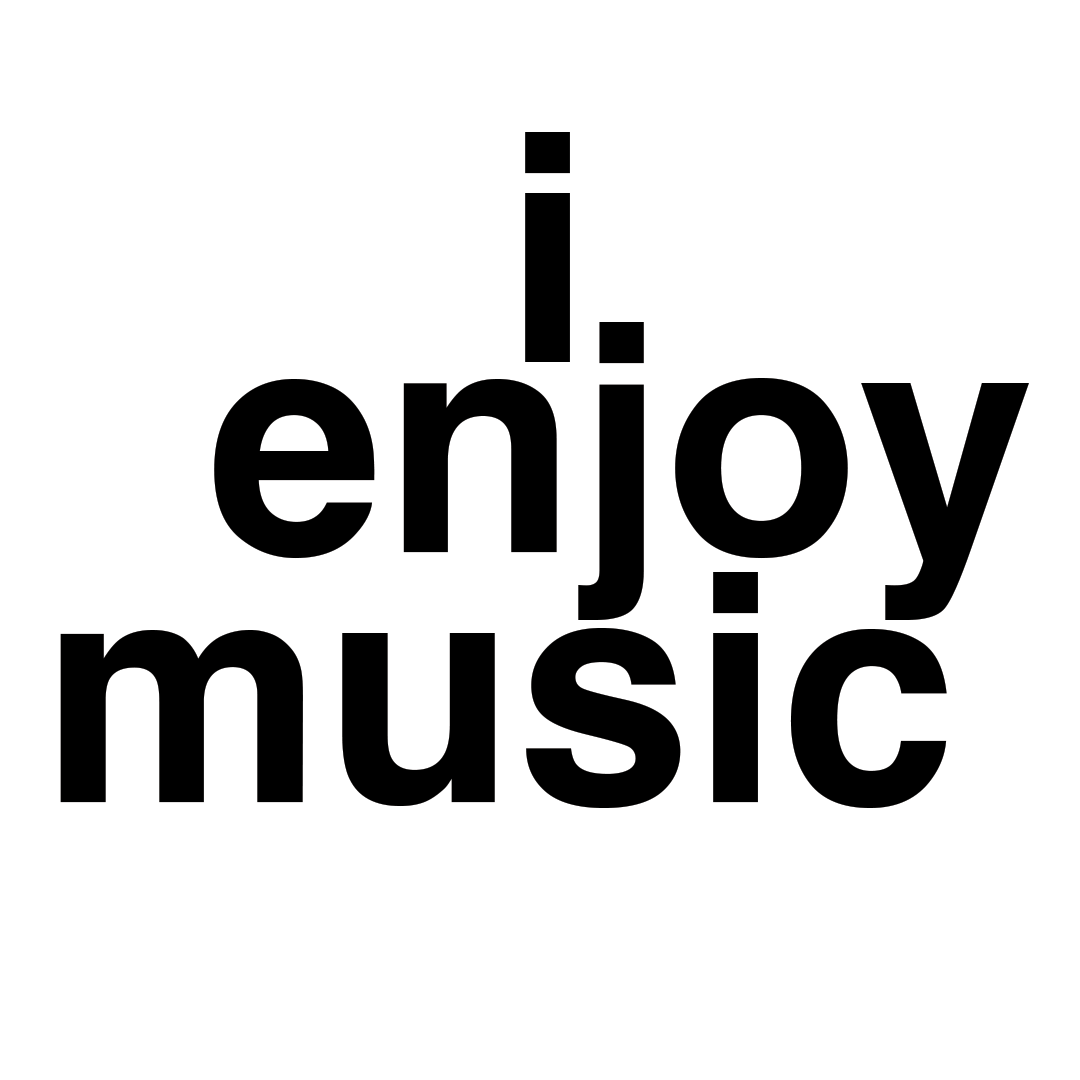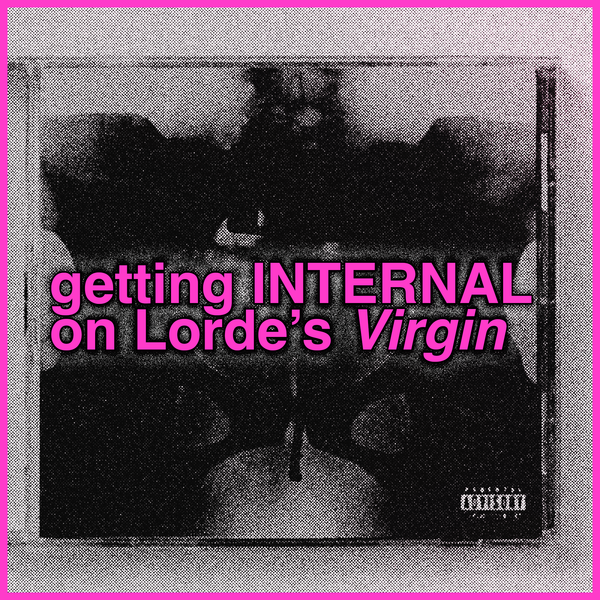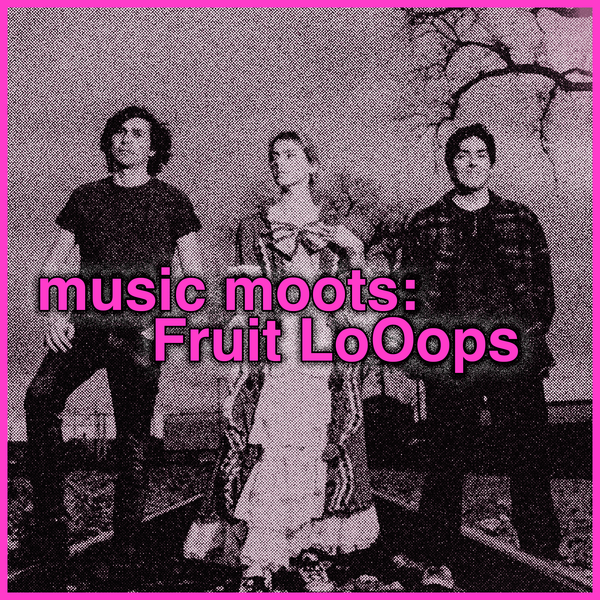tavi gevinson, taylor swift, and seizing the zines of production
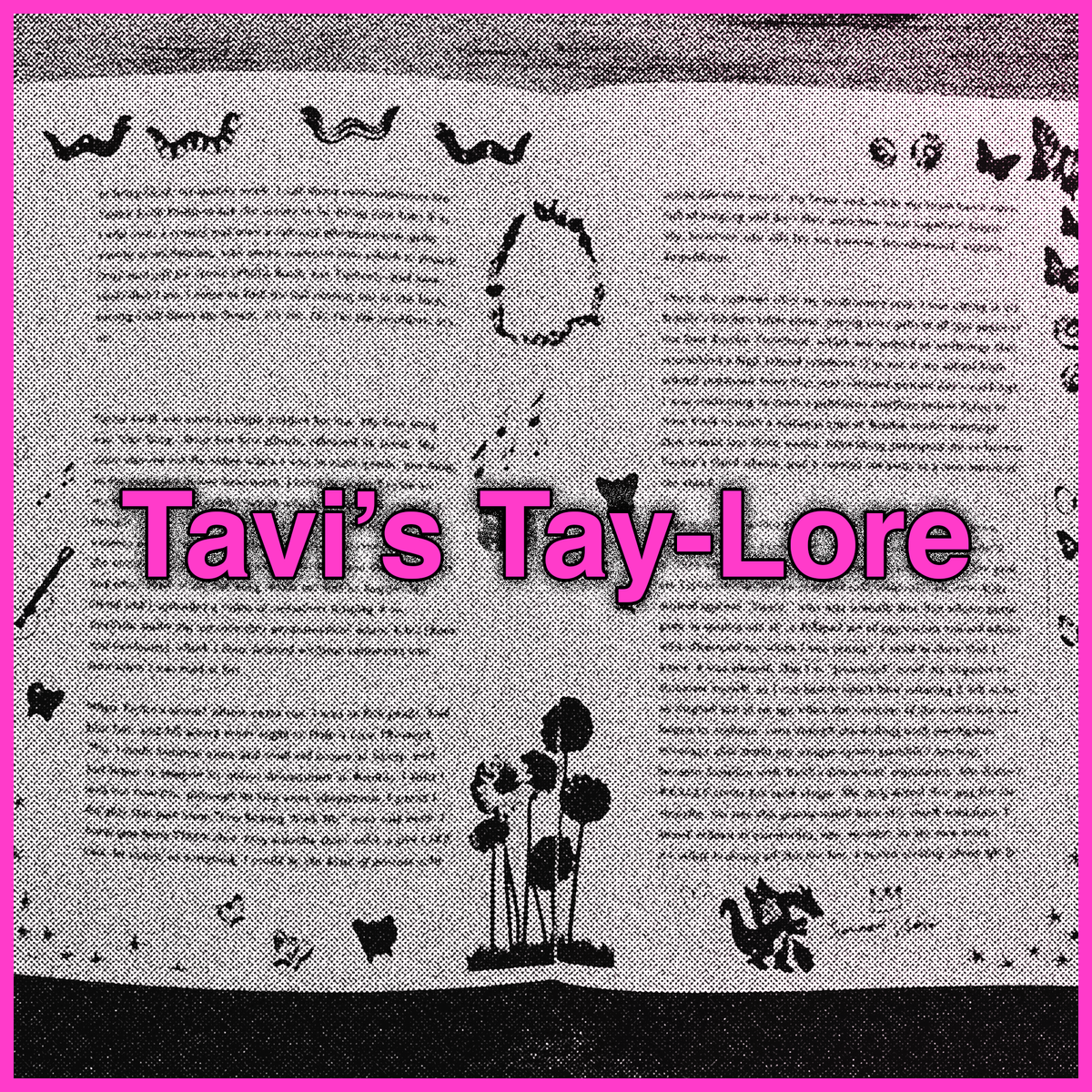
I read an absolutely wild piece of music writing last week. Tavi Gevinson, original Girl Blogger and founder of influential online magazine Rookie, self-published a zine about Taylor Swift in April called Fan Fiction. A few outlets covered this event—Vulture interviewed Gevinson about it, and across the NY Mag sub-vertical hallway, The Cut called the zine "genius"—before Taylor herself released The Tortured Poets Department sort of the way a fallen beehive releases a bunch of bees, therefore bricking mainstream pop culture coverage for the next few weeks*.
If you don't want to swim through 70-odd pages of zine, let me try to summarize, because there's some good shit in there. In the first section, Gevinson treats Taylor Swift as a distant subject to be analyzed. The language leans scholarly: quotes from Virginia Woolf (on the particular beauty of film stars), G. Stanley Hall (on the psychological profile of adolescents), and Roland Barthes (on the performance of narration) provide an academic scaffolding upon which Gevinson can coolly build her analysis of the unique staying power of Taylor Swift. (She later cheekily disavows the tone of this segment, calling it "my smug little 'culture critic' attempt," to which I say: yes...exaaactlyyy.)

Why do people love Swift so much? It's not necessarily because she divulges secrets to fans within coded liner notes, or because she tells you what it might be like to date Harry Styles. Gevinson sees Taylor Swift as an "obsessive" whose primary language is memory: not just recounting a romantic interlude or a moment of heartbreak, but framing it as a memory the moment it happens, creating an instant nostalgia whose protected sheen renders it better than the real thing:
"Note how often her narrator compares love or her lover to a book, movie, song, story, poem, or 'the radio.' Note how she mimics the wistfulness of analog communication but codifies experience at the speed of an iPhone camera. Note when a gauzy scene is halted by a thought as plain as a text message. Note where the poet’s ornate metaphor gives way to the teenager’s run-on sentence. Note how many notes, photos, and phone calls drive the action, creating frames within frames. Note that Swift has described many of her early songs as diary entries and unsent letters. Note that Janet Malcolm wrote that the author of a love letter falls in love only with her own epistolary persona. Note that when I wrote letters to boys in high school, I made copies of them first."
The climax of this Swiftian emotional consciousness is, of course, the Eras tour, which Gevinson attends; when Taylor Swift introduces her early career hit "You Belong With Me" by asking the audience "Are you ready to go back to high school?", the eight-year-old sitting next to Gevinson screams in assent. This untimely howl is not the absurdity it might seem. "You Belong With Me" is not high school, it's "high school": a song about a situation that feels like a memory of high school, written like a movie, written by someone who didn't attend much high school at all. Taylor Swift doesn't have to experience things to write about them, and you don't have to have experienced anything Taylor Swift has written about in order to enjoy her music—within the colossal singularity of Swift fandom, "meaning outlives experience," writes Gevinson.
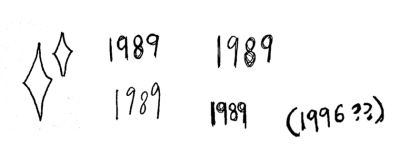
It makes sense that Gevinson thinks of Swift as a kindred spirit. Gevinson's most signature work often has the same spirit of Memorializing The Present—nowstalgia, in a sense—within a different medium. Within the medium of blogging, of course. This is where I say I've read Gevinson's work on and off since she was twelve, which is a really weird thing to write, now that I'm writing it. I found her blog the way people found blogs in the pre-social media days, when we were all wandering around in the dark with blindfolds on or whatever—it was 2008, I was a senior in high school, I had my handful of fashion blogs I loved, one of them was a blog called The Fashion Robot, and one day The Fashion Robot linked out to a different blog by her little sister's friend. That was Gevinson, creating Style Rookie.
I remember being in awe of this young lady's complete lack of self-consciousness as she wore crazy outfits and did photo shoots in her backyard. I myself was creative—I played guitar and wrote poems and even had a blog of my own—but I did it like a squirrel, hunched over, tail fluffed with apprehension, burying every nut as soon as I got ahold of it. Meanwhile this tween did not appear to give a flying fuck what anyone thought of her. That was what made her special, and what drew loyal fans and fashion industry vampires toward her: she was precocious, and she knew it, and she wasn't afraid to use that precocity (and that self-awareness) to gather an audience for whatever creative expression she was interested in. Sounds a little like Taylor Swift, yeh?

I disengaged with Gevinson's writing when I went off to college and she started Rookie. Rookie was for adolescents, and it specialized in that particular Swift-esque romanticization of the present. Notebook doodles suggesting mid-class boredom, fashion spreads heavy on pink and bows, Sophia Coppola vibes. Adolescence is real, and it's kind of awesome, but it also sucks, and Rookie wanted you to know it, all of it, and take advantage of it, and not let it get you down. But I wasn't a teen anymore. I was in my early twenties, dressing in skintight American Apparel, filling my birth control prescription at the college health center, filling my apartment shelves with empty bottles of Jack Daniels like they were mounted hunting trophies. Rookie's professionalized teenagedom came just a little too late for me. But Gevinson's raw juvenilia drew me in at the perfect time.
Of course, Gevinson isn't just a fan of Taylor Swift, or just a kindred spirit—she, at least for a time, was Swift's actual friend. She writes about this in the second section of the zine, an anti-parasocial jumpscare (ha! I'm not a professor of Swift Studies! I've slept over at her HOUSE) introduced alternately as "fiction" and "satire" (the latter label gets broken down wonderfully by Leigh Stein in Lithub, by the way).
"I am told that the plausible deniability of 'fiction' makes it that much easier to be truthful," Gevinson writes, invoking the "characters" Swift employed in her pandemic era albums, before spilling quite a bit about the utter weirdness of getting friend-matched with a pre-Red-era Swift (by Zooey Deschanel of all people) and trying to balance her fandom of "Taylor Swift" with her similarities to Taylor Swift as a known quantity in a creative field.
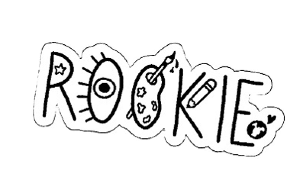
The news-y pieces about this zine generally covered the celebrity interest angle. Did this "fictional" account of their friendship actually happen? What about that email exchange in the third section where Swift scuttles Gevinson's proposed book about her music? Gevinson's lips have been zipped in the (non-paywalled) press—when Vulture asked about the zine's veracity, she replied, "It would be a mistake not to ask, but I just worked so hard on it that I feel like it undermines it to apply a matrix of real or not real."
I'm not interested in whether these events happened. They feel true enough in the writing, as it were. I'm more interested in Gevinson's apparent freedom to write whatever she wants when she dons the costume of "fiction." She shuttered Rookie in 2018 with a note that lamented the publication's dual existence as both a beloved "art project" and a business that was no longer financially sustainable without outside investors or off-brand monetization. Her post-Rookie writing career has a distinct bent of what I would call "measured anguish"; she has written several elegant essays for The Cut, for example, about how Instagram has warped her sense of reality, and how a contemplation of a sexual assault she experienced as a young woman has changed her perspective on the agency of famous teenagers. She is excellent at expressing herself, but the writing feels guarded, barricaded against any backlash it might inspire. Which, fair enough for someone who has existed in public for over half her life.
Fan Fiction doesn't have that guarded tint to it. It feels deliberate, but reckless. It taunts the celebrity forum-dwellers and Swiftie codebreakers. It's smart, it's confessional, it's messy, it's a flex. It's the first thing I've read from Gevinson in a very long time—basically since the Style Rookie days—that feels like she's reveling in her creative identity rather than sublimating it. If it were a Taylor Swift album, it wouldn't be the quaint short story collection of folklore, and it certainly wouldn't be The Tortured Poets Department, which I find so ponderous with self-awareness as to collapse in on itself. No, it'd be Reputation! A goth-punk moment of female rage at being gaslit by—hehe, I kid, I kid, I joke with you.
I don't think it's a coincidence that this electric, sly, look-what-you-made-me-do energy comes not from a corporate publication, but from a self-published zine. No gods, no masters, no investors, no one to please but herself. Is blogging the truest written art form? It might be. And I might be biased! But there's no one standing between me and the ability to ask the question out loud.
*Of course, in the time it took me to write this, GQ published a piece by Annie Hamilton that's sort of a stylistic mirror of Fan Fiction, with Hamilton in the Tavi role and Gevinson in the Taylor role, which seems to have been written after, in response to Hamilton's proposal for a writing collab, Gevinson suggested a review of her zine instead ("She expressed, vulnerably, that she wanted the zine to get more readers.") Don't we all, baby, don't we all...
Thanks for reading I Enjoy Music. If you like it, tell a friend about it!
